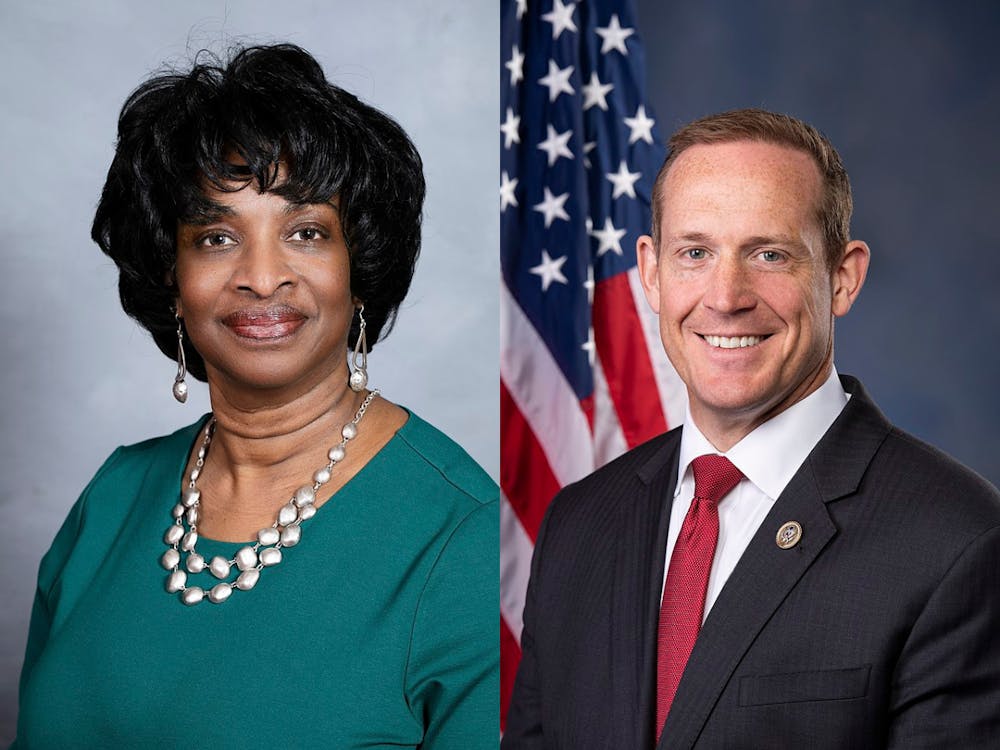With the total cost of the 2022 midterm elections projected to have exceeded a record-breaking $16.7 billion, campaign financing is playing an ever-expanding role in politics. One major source, top executives at the cryptocurrency exchange FTX, has recently come under scrutiny following the firm’s collapse and bankruptcy. Super PACs and donations were linked to the firm’s executives.
Ted Budd, who was recently elected to represent North Carolina in the U.S. Senate, and Valerie Foushee, who was recently elected to represent North Carolina’s 4th Congressional District (which includes Durham) in the U.S. House, were two of many candidates for federal office who had their campaigns significantly financed by top FTX executives.
FTX executives’ moves appeared to be part of a nationwide lobbying effort to shape cryptocurrency regulation.
Some senators and representatives have committed to giving away FTX’s money in light of the situation. For example, an aide for Sen. Dick Durbin (D-IL) told CNBC on Nov. 21 that the high-ranking Democrat would give FTX founder Sam Bankman-Fried’s $2,900 donation to “an appropriate charity.”
Foushee and Budd did not respond to a request for comment on their stances on cryptocurrency regulations and whether they planned to give away the money they received from FTX executives.
Why did FTX collapse?
Earlier this month, Bankman-Fried, the former CEO of FTX and cryptocurrency trading firm Alameda Research, had an estimated net worth of $16 billion. By Nov. 11, that estimate became zero.
After a Nov. 2 CoinDesk report showed that billions of dollars in assets on the balance sheet of Alameda Research was tied to FTT tokens, a native cryptocurrency issued by FTX, the cryptocurrency exchange Binance announced that it was getting rid of their shares of FTT. This prompted a mass customer exodus that, according to The Wall Street Journal, resulted in a shortfall of up to $8 billion due to the mass withdrawal requests.
It was soon revealed that Bankman-Fried had transferred at least $4 billion, including customer funds, to Alameda Research to mitigate losses suffered by the trading firm. On Nov. 11, FTX filed for bankruptcy and replaced Bankman-Fried with John J. Ray III as CEO. Bankruptcy filings then showed that Bankman-Fried, along with other top FTX executives, had received a total of $4.1 billion in loans from Alameda Research, with Bankman-Fried receiving an estimated $2.7 billion.
More than $60 million of that money found its way to the benefit of political campaigns across the country during the recent midterm election. Candidates from both major parties benefited.
Valerie Foushee
Protect Our Future, a super PAC funded almost entirely by Bankman-Fried, was established on Jan. 18. According to their website, POF is “an organization designed to help elect candidates who will be champions for pandemic prevention.”
According to Federal Election Commission records, by Aug. 18, Protect Our Future spent over $24 million, mainly on the primary campaigns of Democratic candidates running in safe Democratic seats. Combined with contributions in other forms, Bankman-Fried spent nearly $37 million on Democratic candidates, making him the second largest individual contributor to Democrats behind George Soros.
FEC records show that POF spent a combined $1,040,139 in support of Foushee’s campaign. The funds were used for ad buys, ad production and direct mail services. Bankman-Fried also personally gave $2,900, the maximum contribution allowed by the FEC, to Foushee’s campaign on Mar. 31.
Ted Budd
The influence of top FTX executives on the recent midterm elections was bipartisan, even in North Carolina. Although Bankman-Fried primarily supported Democratic candidates, Ryan Salame, co-CEO of FTX Digital Markets, handled most of the Republican side. Salame spent a total of $21.4 million in support of Republican congressional candidates, with $15 million used to fund his own super PAC called American Dream Federal Action.
Salame’s vision for ADFA was similar to Bankman-Fried’s. As he told the Washington Examiner, “we’re not prepared for pandemics and not prepared for … future viral outbreaks'' and that “one of the best things we can do for future generations [is] to ensure that we are prepared for them.”
The ADFA website outlines their mission to uplift “forward-looking leadership” in vague terms such as saying that they “believe that public policy solutions should have a positive impact on people’s lives.”
ADFA ultimately spent over $12.6 million on Republican campaigns, $516,560.12 of which was spent in support of the election of Ted Budd to the U.S. Senate, according to FEC records. Much of this money also was used to fund digital advertisements.
Budd was also the beneficiary of $240,000 in spending by Crypto Innovation, a PAC that “supports candidates who responsibly regulate and keep innovation in America.” According to the New York Times, Crypto Innovation received $2.8 million from GMI PAC, a super PAC that Salame was a founding board member of. GMI PAC received 32% of its nearly $11.6 million from Salame, Bankman-Fried and another FTX affiliate.
Additionally, Salame personally donated the maximum FEC contribution of $2,900 to Budd’s campaign on Sept. 19.
Get The Chronicle straight to your inbox
Signup for our weekly newsletter. Cancel at any time.

Jazper Lu is a Trinity senior and centennial/elections editor for The Chronicle's 120th volume. He was previously managing editor for Volume 119.

